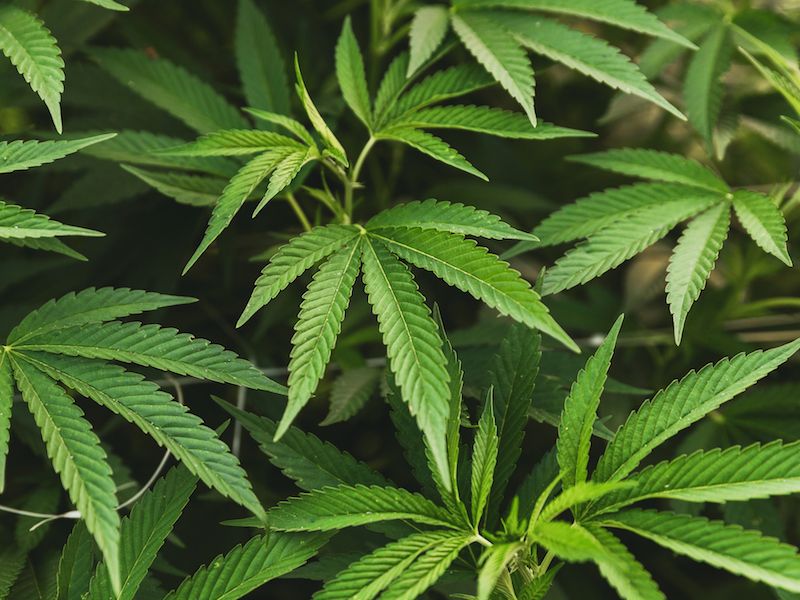
Public opinion about marijuana and cannabinoids have changed remarkably in the past several decades. THC, cannabinoids, and even marijuana are legal for medical use in the majority of states. A decade ago it would have been unthinkable for marijuana to be legal for recreational usage but some states have even passed this law.
Cannabinoids are classified as a group of substances derived from the cannabis or marijuana plant. New things are being uncovered about cannabinoids every day in spite of their recent decriminalization in some states. We usually think of these particular compounds as possessing universal healing properties, but established research implies there might also be negative impact including a strong connection between cannabinoid usage and the occurrence of tinnitus symptoms.
Many Kinds of Cannabinoids
There are many varieties of cannabinoids that can be consumed now. It’s not just weed (or Mary Jane, or grass… ok, let’s just all agree upfront that marijuana has many nicknames and move on). Oils, mists, pills and other variations of cannabinoids are currently available.
The forms of cannabinoids available will vary state by state, and under federal law, many types are still illegal if the amount of THC is more than 0.3%. So it’s still normal for people to be very careful about cannabinoids.
The problem is that we don’t yet grasp much concerning some of the lasting side effects or risks of cannabinoid usage. A good example is the new information about how cannabinoids influence your hearing.
Cannabinoids And Your Hearing, Some New Studies
Whatever you would like to call it, cannabinoids have long been linked to improving a large number of medical conditions. Seizures, nausea, vertigo, and more seem to be helped with cannabinoids, according to available anecdotal information. So investigators resolved to see if cannabinoids would be helpful with tinnitus, as well.
Turns out, cannabinoids might actually cause tinnitus. Based on the research, more than 20% of study participants who employed cannabinoid products reported hearing a ringing in their ears. And these participants had never had tinnitus symptoms before the study. Additionally, marijuana users were 20-times more likely to report having tinnitus symptoms after 24 hours.
And for individuals who already have tinnitus, marijuana use caused it to get worse. So, it seems fairly certain that tinnitus and cannabinoids aren’t really compatible.
How Cannabinoids Make Tinnitus Worse
There are a couple of tangible ways in which cannabinoids can cause your tinnitus to get worse. To start with, the incidents of tinnitus symptoms can become more consistent, you could experience the buzzing or ringing in your ears more persistently. Also, your struggles with tinnitus can get more extreme when you use cannabinoids. Louder ringing that can be harder to ignore can be the result.
Cannabinoids have also been found to trigger the onset of tinnitus symptoms. To put it a different way: if you didn’t suffer from tinnitus before, you might develop tinnitus after you use cannabinoids.
It’s Still Unclear What Causes Tinnitus
Just because this link has been discovered doesn’t actually mean the underlying causes are all that well understood. That cannabinoids can have an impact on the middle ear and on tinnitus is fairly clear. But it’s much less obvious what’s causing this impact.
But we recognize that using marijuana, unlike other mood altering substances such as alcohol, can cause tinnitus.
Research, unquestionably, will continue. People will be enabled to make a practical choice regarding which of the many forms of cannabinoid to choose as we obtain better insight into their connection to tinnitus.
Beware The Miracle Cure
Lately there has been a lot of hype created around cannabinoids by marketers. That’s partly because mindsets are changing about cannabinoids (and, it could also reveal that people are attempting to get away from opioid use). But this new research clearly demonstrates that cannabinoids can and do produce some negative consequence, particularly if you’re concerned about your hearing.
You’ll never be able to escape all of the cannabinoid enthusiasts and evangelists in the world, the marketing of cannabinoids has been especially aggressive.
But this new research definitely indicates a strong link between cannabinoids and tinnitus. So no matter how much advertising you see for CBD oils, if you’re worried about tinnitus, you should probably avoid them. It’s worth being cautious when the connection between tinnitus and cannabinoids has been so firmly demonstrated.
